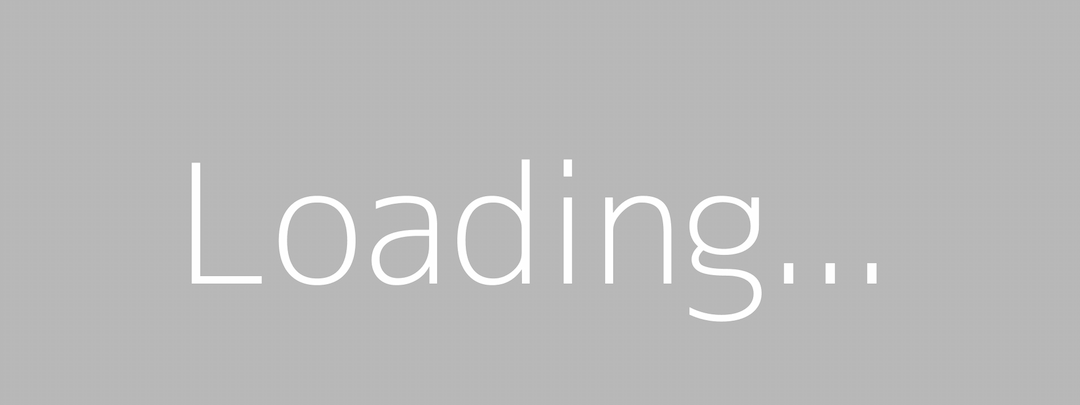10 min read • Published 16 Dec 24
Are Recurring Deposit rates competitive?


Table of Contents
Saving can be one of the most disciplined things to put aside when life is fast-paced and one is on the go at work. However, you can easily achieve your financial goals with little planning and consistency.
A Recurring Deposit, or RD for short, is a really simple but potent tool that keeps you saving regularly. However, only once you have gained the know-how about the intricacies surrounding RDs can you use it to secure the future.
An RD can be a valuable addition to your debt component as part of a well-diversified investment portfolio. By understanding the intricacies of RDs, you can harness their potential to secure your financial future.
Let’s dive deeper into the world of RDs and explore how they can benefit you.
What is a Recurring Deposit, and How Does It Work?
A Recurring Deposit (RD) account works on a simple principle: fixed tenure. You start with selecting a fixed tenure for your RD, usually ranging from 6 months to 10 years. The selected tenure determines the horizon for which you will invest in your savings.
- Regular Deposits: You commit to deposit a certain amount of money into your RD account every month. This systematic saving approach leads to savings without fail.
- Interest Compounding: The bank accrues interest on your deposits at a rate you specified. Rates are compounded periodically, and interest earned on principal deposits and interest accrued are accrued.
- Maturity Amount: At the end of your chosen tenure, you are credited with the total amount, including the principal deposits made and interest earned. So you may use this for whatever purpose you choose – maybe to purchase a car, a house, fund your child’s education, etc.
Example:
Let’s say you deposit Rs. 1,000 per month for 2 years in an RD account with an interest rate of 7% per annum. Here’s how it works:
- Regular Deposits:
- Total deposits over 2 years = 24 months * Rs. 1,000/month = Rs. 24,000
- Interest Compounding:
- Interest earned on the deposits will compound over time, leading to additional returns.
- Maturity Amount:
- Using a simple RD calculator, you can calculate the approximate maturity amount. In this case, it would be around Rs. 26,482.
Knowing these basic points, you would easily be using RDs to achieve any financial goal.
Investment Strategy Behind Recurring Deposits
Recurring Deposits, or RDs, are low-risk investments, balancing the safety of investment and return. They are best for people who focus on preserving capital and steady savings.
Some common investment strategies through RDs are as follows:
Short-Term Goals:
- A well-funded emergency fund will help you handle the financial shocks you will experience. RDs can be very helpful in creating a good emergency fund.
Retirement Planning:
- RDs may not be the sole investment option for retirement, but they could form part of a diversified portfolio. Regularly saving through RDs can supplement your retirement savings.
Benefits of Investing in Recurring Deposits
Understanding the mechanics and the advantages of recurring deposits will help you make maximum use of this investment vehicle and meet your financial objectives in the best possible manner.
There are several benefits to RDs that make them a preferred savings vehicle for most people:
Disciplined Savings
- RDs are a disciplined way of saving because one must deposit regularly.
- Opening an RD, requires keeping a definite sum of money in mind every month so that one stays on course with their savings plan.
Assured Returns
- RDs offer fixed interest rates, thereby offering a fixed return on investment.
- This can be of great importance to those who are seeking a safe and risk-averse investment option.
- Interest rates on Recurring Deposits (RDs) can vary depending on the bank, tenure, and current economic conditions. However, you can generally expect interest rates to range between 4% to 8% per annum.
- It’s important to note that interest rates can fluctuate over time. To get the most accurate and up-to-date information, it’s recommended to check with your bank or financial institution directly.
Easy to Open and Manage
- Opening an RD account is easy and can be done at any bank branch or online banking.
- Maintaining your RD is also easy; you can choose online tracking, auto-transfer, and maturity reminders.
Liquidity
- Even though RDs are regarded as a long-term investment, you can withdraw your funds before maturity.
- Although RD withdrawals may have some drawbacks, there’s also some upside that involves considerations as a part of early RD withdrawal based on its terms and conditions.
Tax Benefits
Interest can be tax-deducted upon accruing certain circumstances, so refer to your tax consultant for proper guidelines and explanations.
Unfortunately, there are no specific tax benefits or exemptions on Recurring Deposits (RDs) under the Income Tax Act of 1961.
However, it’s important to understand the tax implications on the interest earned from RDs:
- Interest Income: The interest earned on your RD is considered taxable income. It will be added to your total income and taxed according to your applicable income tax slab.
- TDS (Tax Deducted at Source): If the interest earned on your RD exceeds Rs. 40,000 in a financial year, the bank will deduct TDS at a rate of 10%(with PAN card) and 20% (without PAN card). To avoid TDS deduction, you can submit Form 15G or 15H (for senior citizens) to the bank, certifying that your total income is below the taxable limit.
While RDs offer a secure and stable investment option, they primarily focus on capital appreciation and regular income. For significant tax benefits, consider exploring other investment avenues like Equity Linked Savings Schemes (ELSS), which offer tax deductions under Section 80C of the Income Tax Act.
Note: Rates for interest of RD differ among different banks and also change time-to-time. Suggested action: Compare interest offered by various banks before applying to open an RD account
Risks Associated with Recurring Deposits
While Recurring Deposits (RDs) are a relatively safe investment option, they do come with certain risks:
- Lower Returns
- Compared to other investment instruments like equity mutual funds or stocks, RDs typically offer lower returns.
- The fixed interest rate on RDs may not keep pace with inflation, especially during periods of high inflation.
It’s important to note that interest rates can fluctuate over time and are influenced by factors like the Reserve Bank of India’s monetary policy and overall economic conditions. To get the most accurate and up-to-date information, it’s recommended to check with your bank or financial institution directly.
- Inflation Risk
- Over time, inflation can erode the purchasing power of your money.
- If the interest rate on your RD is lower than the inflation rate, your savings may not grow as much as you would like.
- Liquidity Constraints
- While you can withdraw from an RD before maturity, early withdrawal usually involves penalties.
- These penalties can reduce the overall returns on your investment.
It’s important to consider these risks before investing in RDs. While they offer a safe and steady return, they may not be the most suitable option for everyone.
Who Should Invest in Recurring Deposits?
Recurring Deposits (RDs) are best suited for individuals who prioritise safety, stability, and disciplined saving. Here are some investor profiles that may find RDs beneficial:
- Risk-Averse Investors
- If you are uncomfortable with the volatility of market-linked investments, such as stocks or mutual funds, RDs offer a relatively low-risk option.
- They provide a steady return with minimal risk to your principal investment.
- Short-Term Goal Savers
- Saving for a vacation
- Funding a home renovation
- Building an emergency fund
- Saving for a child’s education
- RDs are ideal for individuals with specific short-term financial goals, such as:
- Disciplined Savers
- RDs promote disciplined saving habits by requiring regular deposits.
- By setting up an RD, you can automate your savings and ensure that you consistently save a portion of your income.
- Senior Citizens
- Senior citizens prioritizing safety and stability may find RDs a suitable investment option.
- The fixed interest rate and regular income from RDs can provide financial security during retirement.
While RDs offer a safe and reliable investment option, they may not be the most lucrative. For those seeking higher returns, exploring other investment options, such as equity mutual funds or stocks, can be more suitable.
Top Recurring Deposit Banks to Consider
When choosing a bank for your RD, consider factors like interest rates, customer service, and branch network. Here are some popular banks known for their competitive RD rates:
- State Bank of India (SBI)
- HDFC Bank
- ICICI Bank
- Axis Bank
- Kotak Mahindra Bank
Disclaimer: Interest rates on Recurring Deposits (RDs) can fluctuate frequently. It’s advisable to check with your specific bank or financial institution for the most accurate and up-to-date information.
Here’s a table comparing the interest rates offered by some major Indian banks on RDs, as of December 2023. Please note that these rates are indicative and subject to change:
BankInterest Rate Range (%)
| State Bank of India (SBI) | 5.00% – 6.75% |
| ICICI Bank | 5.00% – 7.20% |
| HDFC Bank | 5.00% – 7.00% |
| Kotak Mahindra Bank | 5.00% – 7.10% |
| Axis Bank | 5.00% – 7.10% |
Please note:
- Interest rates can vary based on the tenure of the RD.
- Senior citizens often receive higher interest rates.
- It’s recommended to compare interest rates across multiple banks to get the best deal.
Note: For the most accurate and up-to-date information, you can visit these banks’ official websites or consult a financial advisor.
Conclusion: Are Recurring Deposits Right for You?
RDs are a very good means for the disciplined saver to meet his short-term goals concerning savings. However, benefits should be weighed against possible disadvantages. If you want to sacrifice some returns for safety and stability, RD is fine. If you seek better returns, look into other asset classes like equity, MF, or stock.
Select a bank that provides competitive interest rates and convenient banking services. Knowing the features and limitations of RDs will help you make the right decisions to achieve your financial goals.
Disclaimer: This information is supplied solely for informational reasons. Any mistakes, omissions, or results resulting from the use of this information are not PowerUp’s responsibility.
